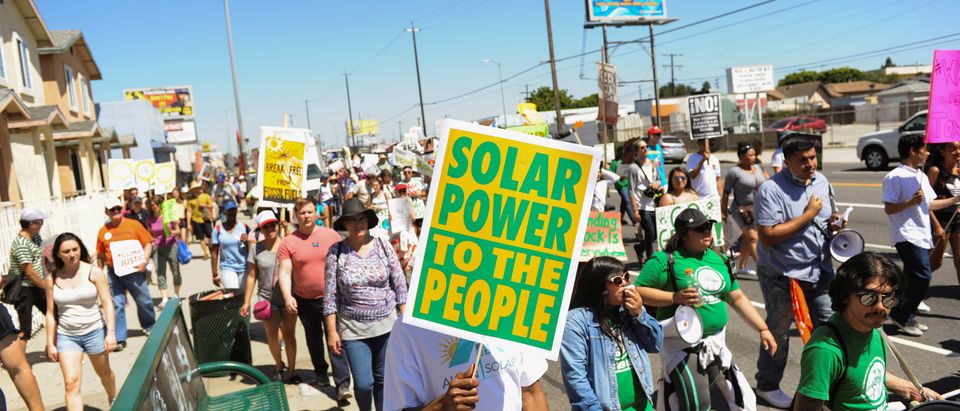Does anyone seriously think that a global change in temperature of less than one degree Celsius threatens national security? In other words, that the difference in climate between Washington, D.C. and Richmond will incite mass migration, war, and every other pestilence? Funny — people drive between our nation’s capital and Virginia all the time, and the road is hardly littered with the tanks of Desert Storm.
National Security Advisor Will Happer wants to establish a Presidential Commission on Climate Security, and it’s about time. And it’s about time that the truly sloppy, shoddy science that the previous administration used be shown in the light of truth.
We live on a planet where surface thermometers show an increase in temperature of 0.9 Celsius since 1900. Never mind that those temperature histories are continually being “revised” to show more warming from the same raw data, and that the laws of physics 101 are being violated in some of these adjustments. Let’s stipulate that there has been this much warming.
Further, let’s agree that there will be some continuation of the warming in this century.
How much? We could consult the latest suite of climate models from the United Nations’ Intergovernmental Panel on Climate Change, and then compare their results to what has been observed since, say, 1980.
The world’s tropics — the 37 percent of the planet that lies within 20 degrees of the equator — are home to much unrest. Think Venezuela, southern Mexico or Syria. Migration. Cultural clash. Instability. Climate change.
It turns out the IPCC’s models have dramatically overpredicted warming there. While the tropical free-atmospheric temperature since 1980 has gone up a couple tenths of a degree, their computer models say it should have risen almost five times more. For the facts in the air on this, consult the repeated congressional testimony of the University of Alabama’s John Christy.
The new presidential commission ought to look at Syria as the poster-child for the climate-war paradigm. Here’s the meme: Rainfall has declined and so people are beheading each other.
The computer models predict that the dry subtropical high pressure systems will expand as a result of warming. Too bad, but the observed changes are no where near what the models predict. Left to their own devices, those models predict a reduction of about one-quarter inch of rain in the cold (rainy) season, which averages around 10.28 inches, according to data from the Climate Research Unit at the University of East Anglia.
These poor models can’t even get the nearby (Mediterranean) sea-surface temperature changes right, so the observed changes were put into those models as a given. If it’s OK I to fudge in college chemistry lab, it must be OK in foreign policy, right?
When that’s done, the models predict a ten percent lowering of rainy season precipitation. In the meantime, the number of people dependent on Syria’s rainfall increased by 300% since 1971.
Which is more important, a 10 percent change in precipitation (and only about a quarter of that if the sea temperatures weren’t fudged in), or a 300 percent change in the number of people drinking that water?
It’s pretty obvious. And this would be just the first porkie uncovered by a Presidential Commission on Climate Security. There will be many, many more to follow, including the fact that satellites show that the productivity of the world’s most common agrosystem is increasing at 5 percent per year thanks to the carbon dioxide we are throwing into the air.
Let’s shine the light of truth on the notion that a temperature change equivalent to driving from Washington to Richmond is throwing the world into geopolitical chaos.
Patrick J. Michaels (@CatoMichaels) was a research professor of environmental sciences at University of Virginia for 30 years and Virginia State Climatologist, and past-president of the American Association of State Climatologists. He is the author of seven books on climate change and its impact, including “Lukewarming: The New Climate Science that Changes Everything” (Cato Books, 2016).
The views and opinions expressed in this commentary are those of the author and do not reflect the official position of The Daily Caller.


